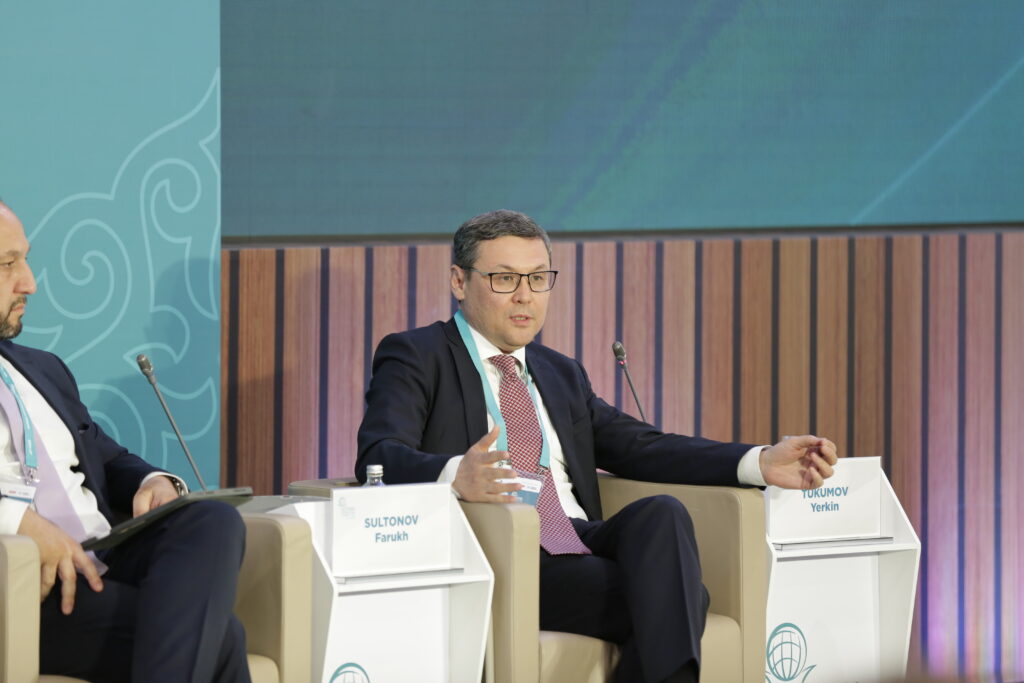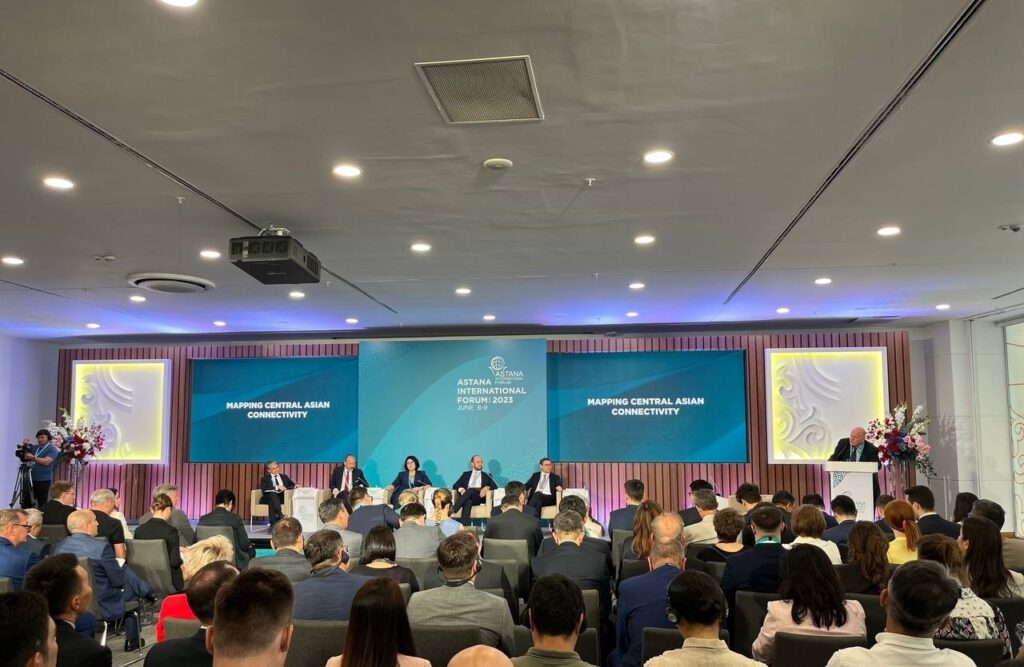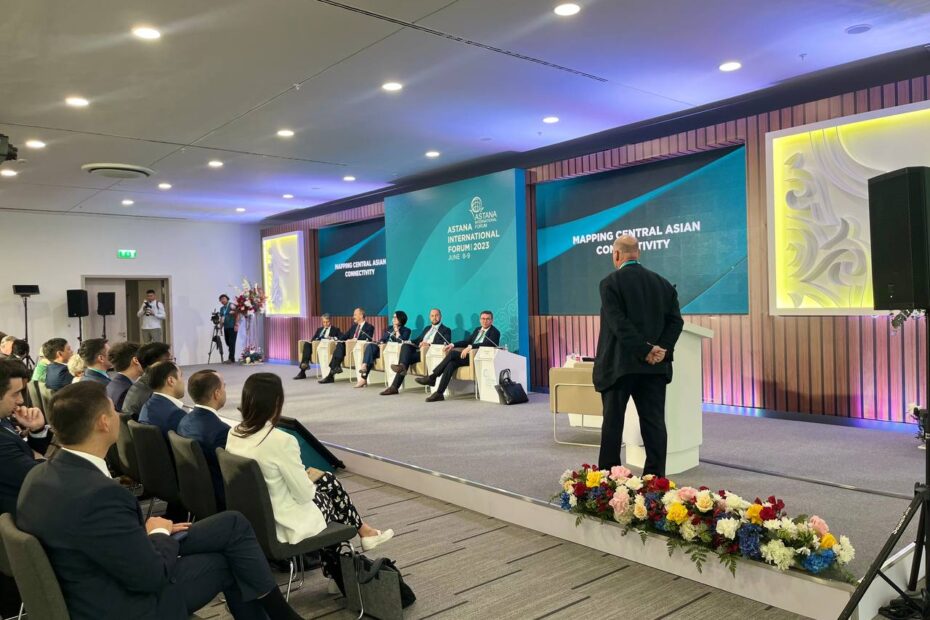The Kazakhstan Institute for Strategic Studies under the President of the RK was an organizer of the panel discussion – “Mapping Central Asian Connectivity” at the Astana International Forum (AIF).
The speakers of the session were Director of the KazISS Yerkin Tukumov; Deputy Executive Secretary of the UN Economic Commission Dmitry Maryasin; Head of the Eurasia Division in the OECD William Thompson; representative of the International Finance Corporation (IFC) in Tajikistan Farukh Sultonov; Coordinator of the Implementation Department of the Agency for Strategic Reforms under the President of the Republic of Uzbekistan Aziza Umarova. The session was moderated by Renaud Girard, a journalist of “La Figaro”.
Answering the first question of the moderator about the current state and situation of the Central Asian countries, about the ties of the five countries and future cooperation, the director of the KazISS Yerkin Tukumov noted that any integration in our region cannot be created without a foundation, continuing the topic:

“Venezuelan scholar and former editor of Foreign Policy magazine Moises Naim emphasizes on 3 types of revolutions: revolution of the multitude, revolution of mobility, and the revolution of mentality. All above-mentioned revolutions are taking place right now in the region and explain the unprecedented conditions that have been changing the nature of power in Central Asia. First, if we talk about the revolution of the multitude, the population of Central Asia increased from 49 to 79 million. The rise is more than 60%. In 2050 it is expected to be over 100 million. Life expectancy is also increasing, averaging 70 years in the region. And poverty is declining in a non-linear fashion. For example, according to World Bank, the poverty rate in Kazakhstan fell from 65 percent in 2001 to about 8.5 percent in 2017. Now more and more people have access to better education, medicine, and new technologies. In addition, young people are becoming more educated, have access to the Internet.”
At the panel session “Mapping Central Asian Connectivity”, the speakers also talked about cooperation within the region in terms of infrastructure development, economic and trade cooperation. The issues of water security, climate change, cultural and linguistic peculiarities of the region were touched upon.
Discussing the topic of the joint future of the Central Asian countries, Director of the Kazakhstan Institute for Strategic Studies under the President of Kazakhstan Yerkin Tukumov noted: “The goals should be real and achievable. For example, direct flights between the capitals.”
Concluding the panel session, the participants noted that the key task for the Central Asian countries is to find a strategic balance between reforms, cooperation and security.




